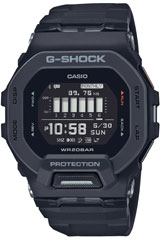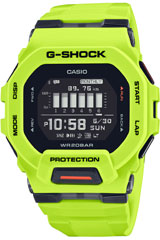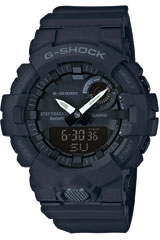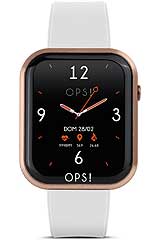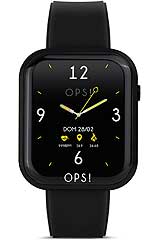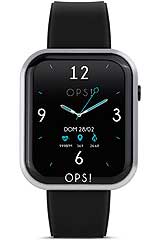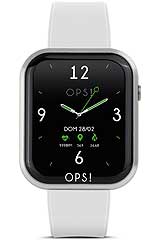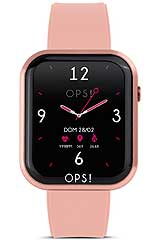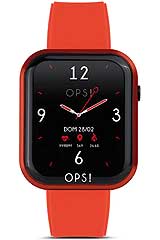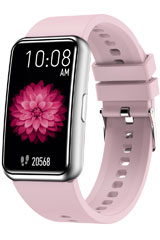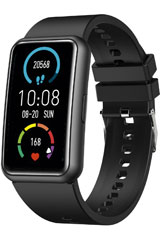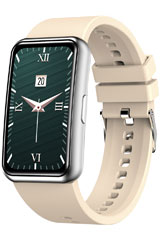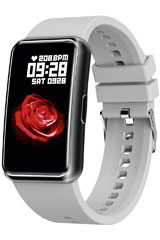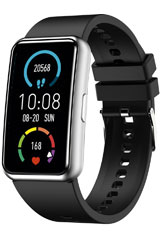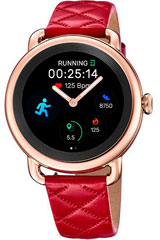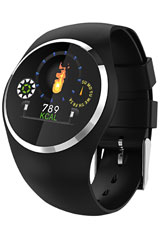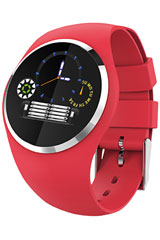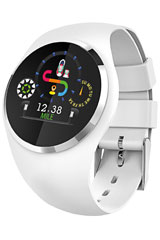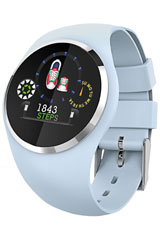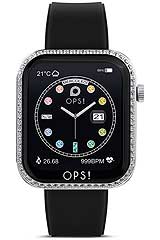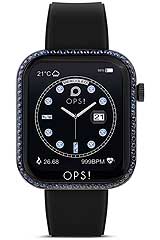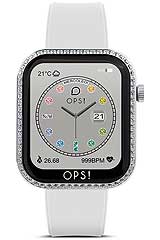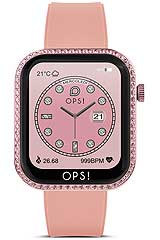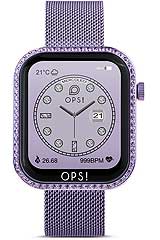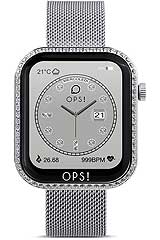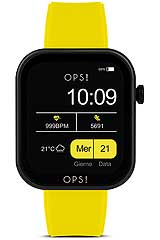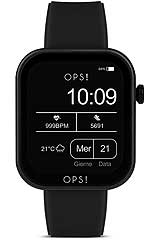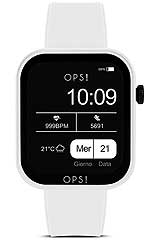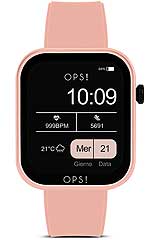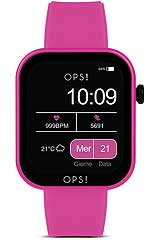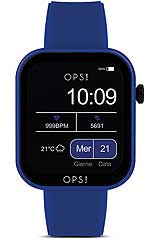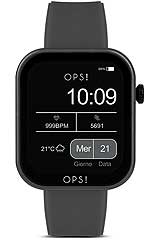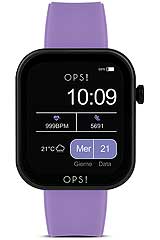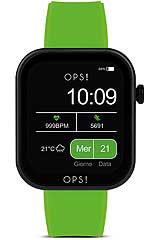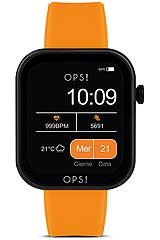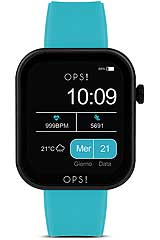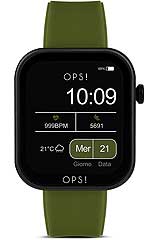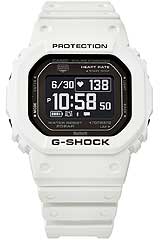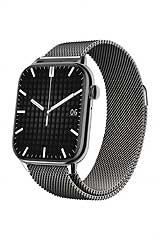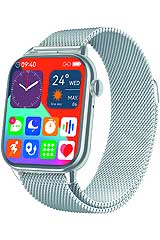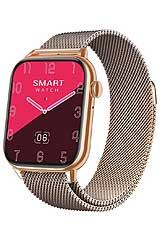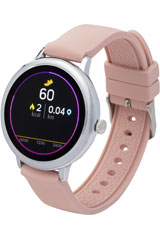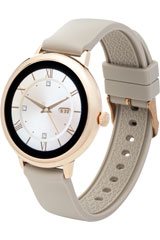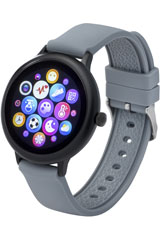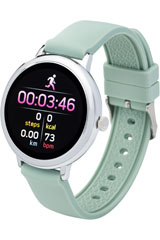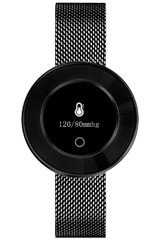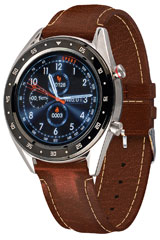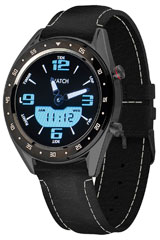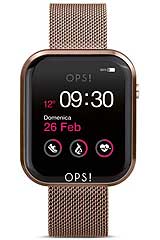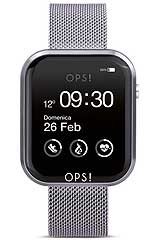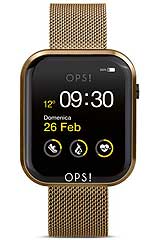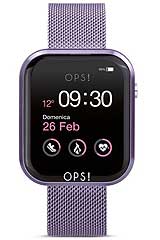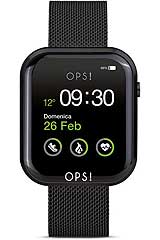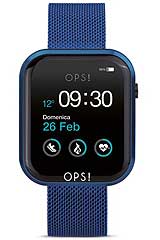Not satisfied? Return them in the new year!
Fitnesstracker
Fitness tracker with different functions
The special feature of fitness trackers is the recording of fitness and health-relevant data by an application. Thus, they should help to lead a healthier lifestyle and better fitness. Fitness trackers record steps and then evaluate them. In addition to step counting, fitness trackers can measure heartbeat rate or sleep quality and also calculate calories consumed. Some watches are even equipped with GPS. Thus, fitness trackers are ideal for sports, regardless of whether you want to reduce weight in a targeted manner or simply increase your well-being.Fitness tracker purchase advice
fitness tracker smart companion
In recent years, fitness trackers have been able to make an ever-improving name for themselves. Especially in times of digitalization, the small smart companions are more in demand than ever. Especially the helpful additional functions can make the life of every watch lover easier. Basically, fitness trackers are supposed to help you lead a healthier and more active lifestyle. Especially in today's world, people attach more and more importance to their physical fitness and a balanced lifestyle.
Table of contents
- What is a fitness tracker?
- What should a fitness tracker be able to do?
- What should I look for when buying a fitness tracker?
- What is the difference with conventional watches?
- Faster to success with a fitness tracker!
- Conclusion
What is a fitness tracker?
A fitness tracker is a small device or application that is used to collect and track data about physical activity and physical fitness. Most fitness trackers are capable of counting steps, calculating distances, burning calories, and recording sleep patterns. Some devices can also monitor a heart rate measurement and other bodily functions. The data is usually displayed on a smartphone or other mobile platform and can be used to track progress on fitness and health goals.
What should a fitness tracker be able to do?
It depends on a person's needs and goals. Some of the features offered by most fitness trackers are:
- Pedometer: This is one of the basic functions of a fitness tracker. It helps to track the daily pedometer and monitor progress in movement.
- Distance & Calorie Tracking: These features can help track progress in reducing body weight and improving physical fitness.
- Heart rate monitoring: Some fitness trackers have a heart rate measurement feature that tracks the heartbeat during physical activity.
- Sleep monitoring: Some devices can be used to record sleep patterns and help improve the quality of sleep.
- Notifications: Some fitness trackers can display notifications such as calls, text messages, and calendar reminders on the device.
- Water resistance: Some devices are waterproof, so they can be used even during wet activities such as swimming or showering.
- Battery life: Most fitness trackers have a long battery life and rarely need to be recharged.
It's important to note that a fitness tracker doesn't have to include all of these features. Choosing the right device depends on the user's needs and goals.
What should I pay attention to when buying a fitness tracker?
When you buy a fitness tracker, there are some important factors that you should consider to ensure that the device meets your needs and goals. Here are some of the most important purchase criteria for a fitness tracker:
- Purpose: Think about what physical activities you want to pursue. Do you just want to count your daily steps or also calculate distances and burn calories? Do you want to monitor your pulse and sleep patterns? Check if the device has all the features you need.
- Wearing comfort: A fitness tracker should be comfortable and can be worn throughout the day. Check the design and size of the device to make sure it's comfortable for you.
- Waterproofing: If you are swimming or doing other water-based activities, it is important that the device is waterproof. Check the specifications of the device to make sure it is suitable for your needs.
- Battery life: Check how long the device's battery lasts and if you need to charge the device often. Some devices have a long battery life that can last up to a week or more, while others may need to be charged more frequently.
- Compatibility: Check if the device is compatible with your smartphone or other devices and if there is a mobile app or web platform that you can use to track your data.
- Price: Fitness trackers come in a variety of price ranges. Think about how much you're willing to spend and compare the features and cost of different devices to get the best value for your money. Reviews and recommendations
- : Read reviews from other users and check the recommendations of experts to make sure that the device is reliable and powerful.
Consider these factors when choosing your fitness tracker to ensure that you get a device that meets your needs and helps you achieve your physical goals.
What is the difference to conventional watches?
A fitness tracker is usually a specialized type of wristwatch or wearable designed to monitor and track its wearer's physical activity and health data. In contrast, a traditional watch is primarily a timekeeping device used to display the current time. While a traditional watch usually doesn't have any other features, a fitness tracker usually has sensors that can measure activity and health data, such as pedometers, heart rate monitors, and sleep monitoring features. Some fitness trackers may also offer GPS tracking and NFC payment features. Another important difference between a fitness tracker and a traditional watch is the purpose for which they were designed. A fitness tracker is mainly designed to monitor the activity and health of its wearer, while a traditional watch is primarily designed to tell the time and serve as a fashion accessory. In conclusion, the main difference between a fitness tracker and a traditional watch is that a fitness tracker is specifically designed to monitor activity and health data, while a traditional watch is primarily designed to tell the time.
Faster to success with a fitness tracker!
A fitness tracker can be a valuable support when it comes to losing weight and becoming healthier. By continuously recording activity and sleep data, it can help track one's progress and motivate oneself. An important factor in losing weight is achieving a calorie deficit, i.e. you have to burn more calories than you eat. A fitness tracker can help keep an eye on calorie consumption. By recording steps and other activities, such as workouts, you can get an overview of how many calories you've burned and how much you still need to burn to reach your goal. Another advantage of fitness trackers is the ability to track one's progress. By recording the activities and weight, progress can be recorded and one can reward and motivate oneself to keep going. Sharing progress and successes with friends and family can also help keep motivation high. In addition, fitness trackers can also help you lead a healthier lifestyle by helping you get enough sleep. A sufficient amount of sleep is important for the body to recover and regenerate. Fitness trackers can help monitor and record sleep to make sure you're getting enough rest. In conclusion, fitness trackers can be a useful tool to help you lose weight and lead a healthier lifestyle. By continuously monitoring activities and sleep, progress can be tracked and goals can be achieved, which increases motivation and makes it easier to lose weight.
Conclusion
In conclusion, fitness trackers can be a valuable addition to an active and healthy lifestyle. They can help identify movement patterns, motivate them, and track progress toward achieving fitness goals. By monitoring activity, sleep, and heart rate, important health data can also be collected. However, it is important to note that a fitness tracker is not a miracle cure and will not lead to improved fitness or weight loss on its own. It is still necessary to have a balanced diet and be physically active on a regular basis to improve health and fitness. In addition, some people may feel overwhelmed by the abundance of information and statistics collected through fitness trackers, which can lead to stress or pressure to achieve certain goals. It's important to find a healthy level of use and make sure that the tracker serves as support and motivation, rather than an additional stressor. Overall, fitness trackers can help improve health and fitness by helping to track and motivate activities. However, one should be aware that they are only a tool and should not be considered as the sole solution for a healthy life.
Choose your preferred payment
You can choose the following payments from our shop: PayPal, credit card and prepayment. For more information visit payment methods & FAQ More payments: prepayment with 3% off for wristwatches
INFORMATION
Last update 2024-11-23 13:30:19

